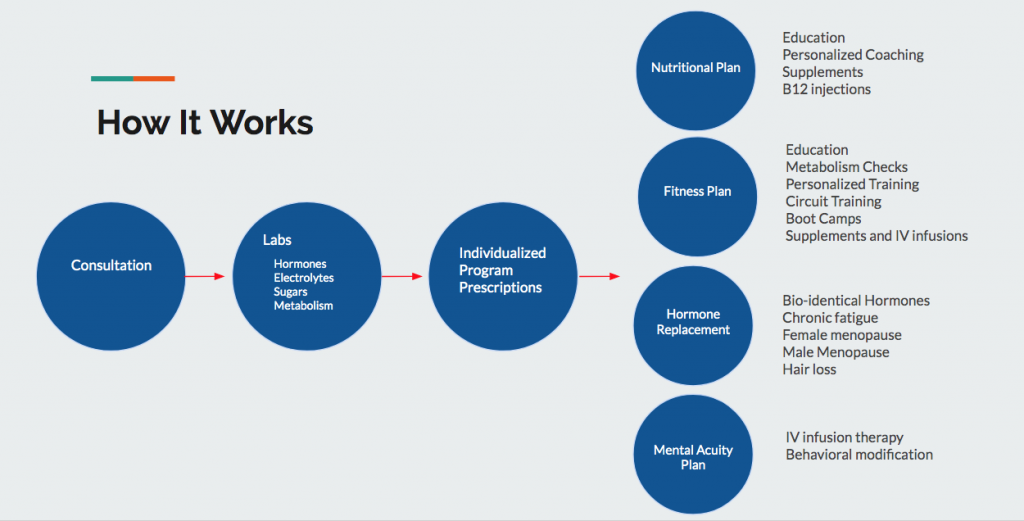Med-Health 360
Hormone Replacement Therapy and Cancer
Men and Women Are Not Created Equal
Menopausal Hormone Therapy and Cancer
ON THIS PAGE
What is menopausal hormone therapy?
How do the hormones used in MHT differ from the hormones produced by a woman’s body?
Where does evidence about the health effects of MHT come from?
What are the health effects of MHT?
Do local formulations of menopausal hormone therapy have different risks?
Is it safe for women who have had a cancer diagnosis to take MHT?
What should women do if they have menopausal symptoms but are concerned about taking MHT?
Are there alternatives for women who choose not to take menopausal hormone therapy?
What questions remain in this area of research?
Where can people get more information about MHT?
What is menopausal hormone therapy?
Menopausal hormone therapy (MHT)—also called postmenopausal hormone therapy and hormone replacement therapy—is a treatment that doctors may recommend to relieve common symptoms of menopause and to address long-term biological changes, such as bone loss, that result from declining levels of the natural hormones estrogen and progesterone in a woman’s body during and after menopause.
MHT usually involves treatment with estrogen alone or estrogen plus progestin, a synthetic hormone whose effects are similar to those of progesterone.
Women who have a uterus—that is, who have not had a hysterectomy—are generally prescribed estrogen plus progestin for MHT. This is because estrogen alone is associated with an increased risk of endometrial cancer, but estrogen plus progestin is not. Estrogen is used alone only in women who have had a hysterectomy.
How do the hormones used in MHT differ from the hormones produced by a woman’s body?
The hormones used in MHT come from a variety of plants and animals, or they can be made in a laboratory. The chemical structure of these hormones is similar, although usually not identical, to those of hormones produced by women’s bodies.
Non-FDA-approved hormone products, sometimes referred to as “bio-identical hormones,” are widely promoted and sold without a prescription on the Internet. Claims that these products are “safer” or more “natural” than FDA-approved hormonal products are not supported by credible scientific evidence. The FDA provides more information about these products on its Menopause page.
Where does evidence about the health effects of MHT come from?
The most comprehensive evidence about the health effects of MHT comes from two randomized clinical trials that were sponsored by the National Institutes of Health as part of the Women’s Health Initiative (WHI)Exit Disclaimer:
The WHI Estrogen-plus-Progestin Study, in which women with a uterus were randomly assigned to receive either a hormone pill containing both estrogen and progestin (Prempro™) or a placebo. The median duration of treatment was 5.6 years.
The WHI Estrogen-Alone Study, in which women without a uterus were randomly assigned to receive either a hormone pill containing estrogen alone (Premarin™) or a placebo. The median duration of treatment was 7.2 years.
More than 27,000 healthy women who were 50 to 79 years of age at the time of enrollment took part in the WHI hormone therapy trials. The goals of these trials were to see if MHT prevents heart disease and bone fractures in postmenopausal women and to determine if MHT affects risks of breast cancer and, for women with a uterus, endometrial cancer. Both trials were stopped early (in 2002 and 2004, respectively), when it was determined that both types of therapy were associated with specific health risks, but long-term follow up of the participants continues to provide new information about the health effects of MHT.
What are the health effects of MHT?
Research has shown that MHT is associated with the following health effects:
Hip and vertebral fractures. Women who took estrogen alone or estrogen plus progestin had a lower risk of hip and vertebral fractures than women who took placebo (1, 2). In both cases the benefit disappeared after the women were no longer taking hormone therapy (3, 4).
Vaginal bleeding. Women who took estrogen plus progestin had more vaginal bleeding that required assessment by endometrial biopsy than women who took placebo (5).
Urinary incontinence. Women who took estrogen alone or estrogen plus progestin had an increased risk of urinary incontinence (1, 6).
Dementia. Among women age 65 and older, those who took estrogen alone or estrogen plus progestin had an increased risk of developing dementia (7, 8).
Stroke, blood clots, and heart attack. Women who took either combined hormone therapy or estrogen alone had an increased risk of stroke, blood clots, and heart attack (1, 2). For women in both groups, however, this risk returned to normal levels after they stopped taking the medication (3, 4).
Breast cancer. Women who took estrogen alone had a lower risk of breast cancer than women who took placebo (2). After nearly 11 years of follow-up, the risk of breast cancer among women who took estrogen alone remained lower than that among women who took placebo (4).
Women who took estrogen plus progestin were more likely to be diagnosed with breast cancer than women who took placebo (9). The breast cancers in these women were larger and more likely to have spread to the lymph nodes by the time they were diagnosed (9). The risk of breast cancer was greater the longer women took the combined hormone therapy, but it decreased markedly when hormone use stopped (10).
These studies also showed that both combination and estrogen-alone hormone use made mammography less effective for the early detection of breast cancer (9, 11). Women taking hormones needed more repeat mammograms to check on abnormalities found in a screening mammogram and more breast biopsies to determine whether abnormalities detected in mammograms were cancer (9, 11).
An ancillary study of the WHI showed that use of combination hormone therapy was associated with increases in the amount of dense breast tissue seen on a mammogram (12). Dense breasts are a risk factor for breast cancer. The results of a case–control study nested within the WHI showed that the increase in mammographic density in the first year after women started taking estrogen plus progestin accounted for all of the subsequent increase in their breast cancer risk (13).
There were more deaths from breast cancer, as well as from all causes, following a diagnosis of breast cancer among women who took estrogen plus progestin than among women who took placebo (14). During 18 years of follow-up, there were more breast cancer deaths among women who took combined hormone therapy, and fewer breast cancer deaths among women who took estrogen alone, compared with women who took placebo (15).
Lung cancer. Women who took combined hormone therapy had the same risk of lung cancer as women who took placebo (16). However, among those who were diagnosed with lung cancer, women who took estrogen plus progestin were more likely to die of the disease than those who took placebo.
There were no differences in the number of cases or the number of deaths from lung cancer among women who took estrogen alone, compared with women who took placebo (17).
Colorectal cancer. In the initial study report, women taking combined hormone therapy had a lower risk of colorectal cancer than women who took placebo (1). However, the colorectal tumors that arose in the combined hormone therapy group were more advanced at detection than those in the placebo group. Also, a follow-up study found that the colorectal cancer risk reduction disappeared after the study participants stopped taking combined hormone therapy medication (3).
Women who took estrogen alone had the same risk of colorectal cancer and stage of disease at diagnosis as women who took placebo (2).
Subsequent analyses of the WHI trials found no strong evidence that either estrogen alone or estrogen plus progestin had any effect on the risk of colorectal cancer, tumor stage at diagnosis, or death from colorectal cancer (15, 18).
Mortality. During 18 years of follow-up, women who took estrogen plus progestin for a median of 5.6 years or estrogen alone for a median of 7.2 years had similar risks of death from any cause, from cardiovascular causes, and from any cancer (including breast cancer) as women who took placebo (15).
Do local formulations of menopausal hormone therapy have different risks?
Both systemic and local treatment options for MHT are available in the United States. Which option a woman receives depends on the menopausal symptoms the treatment is meant to address. Systemic MHT is usually prescribed to treat hot flashes and to prevent osteoporosis. Systemic MHT with combined estrogen plus progestin or with estrogen alone can be given as oral medications; as transdermal patches, gels, or sprays; and as implants.
Local MHT is prescribed to treat genitourinary symptoms such as vaginal dryness. Local MHT contains low-dose estrogen only and is prescribed to women regardless of their hysterectomy status. Local (intravaginal) MHT with low-dose estrogen alone includes creams, tablets (pessaries), and rings.
Findings from the Women’s Health Initiative Observational Study showed that, among women with an intact uterus, those who used vaginal estrogen and those who didn’t had similar risks of stroke, invasive breast cancer, colorectal cancer, endometrial cancer, and pulmonary embolism/deep vein thrombosis (19).
Is it safe for women who have had a cancer diagnosis to take MHT?
One of the roles of naturally occurring estrogen is to promote the normal growth of cells in the breast and uterus. Some cancers also use estrogen to promote their growth. Thus, it is generally believed that MHT may promote further tumor growth in women who have already been diagnosed with breast cancer. However, studies of MHT use in breast cancer survivors have produced conflicting results, with some studies showing an increased risk of breast cancer recurrence (20, 21) and others showing no increased risk of recurrence (22, 23).
What should women do if they have menopausal symptoms but are concerned about taking MHT?
Women who are seeking relief from hot flashes and vaginal dryness should talk with their health care provider about whether to take MHT, the possible risks of using MHT, and what alternatives may be appropriate for them. FDA currently advises women to use MHT for the shortest time and at the lowest dose possible to control menopausal symptoms. The FDA provides additional information about the risks and benefits of MHT use for menopausal symptoms on its Menopause and Hormones: Common Questions page.
Are there alternatives for women who choose not to take menopausal hormone therapy?
Women who are concerned about the changes that occur naturally with the decline in hormone production that occurs during menopause can make changes in their lifestyle and diet to reduce the risk of certain health effects. For example, eating foods that are rich in calcium and vitamin D or taking dietary supplements containing these nutrients may help to prevent osteoporosis. FDA-approved drugs such as alendronate (Fosamax®), raloxifene (Evista®), and risedronate (Actonel®) have been shown in randomized trials to prevent bone loss.
Medications approved by the FDA for treating depression and seizures may help to relieve menopausal symptoms such as hot flashes (24). Drugs that have been shown in randomized clinical trials to be effective in treating hot flashes include venlafaxine (Effexor®), desvenlafaxine (Pristiq®), paroxetine (Paxil®), fluoxetine (Prozac®), citalopram (Celexa®), gabapentin (Neurontin®), and pregabalin (Lyrica®).
Some women seek relief from menopausal symptoms with complementary and alternative therapies. Some of these remedies contain phytoestrogens, which are estrogen-like compounds derived from plant-based sources such as soy products, whole-grain cereals, oilseeds (primarily flaxseed), legumes, or black cohosh. A systematic review and meta-analysis of randomized clinical trials found that some phytoestrogen-containing therapies were associated with modest reductions in the frequency of hot flashes and vaginal dryness but no reduction in the number of night sweats, compared with placebo or no treatment (25). According to the National Center for Complementary and Integrative Health, there is little information on the long-term safety of the use of natural products for menopausal symptoms, and some can have harmful side effects or interact with other drugs a woman may be taking.
What questions remain in this area of research?
The WHI trials were landmark studies that have transformed our understanding of the health effects of MHT. It’s important to note that women who were enrolled in the WHI trials were, on average, 63 years old, although about 5,000 of them were under age 60, so the results of the study may also apply to younger women. In addition, the WHI trials tested single-dose strengths of one estrogen-only medication (Premarin) and one estrogen-plus-progestin medication (Prempro).
Follow-up studies have expanded and refined the original findings of these two trials. But many questions remain to be answered:
Are different forms of hormones, lower doses, different hormones, or different methods of administration safer or more effective than those tested in the WHI trials?
Are the risks and benefits of MHT different for younger women than for those studied in the WHI trials?
Is there an optimal age at which to initiate MHT or an optimal duration of therapy that maximizes benefits and minimizes risks?
Where can people get more information about MHT?
The following resources provide additional information about menopausal hormones and the WHI:
NIH Menopausal Hormone Therapy Information home page
WHI ParticipantsExit Disclaimer page
National Center for Complementary and Integrative Health: Menopausal Symptoms: In Depth page
Selected References
Rossouw JE, Anderson GL, Prentice RL, et al. Risks and benefits of estrogen plus progestin in healthy postmenopausal women: principal results from the Women’s Health Initiative randomized controlled trial. JAMA 2002; 288(3):321–333. [PubMed Abstract]
Anderson GL, Limacher M, Assaf AR, et al. Effects of conjugated equine estrogen in postmenopausal women with hysterectomy: The Women’s Health Initiative randomized controlled trial. JAMA 2004; 291(14):1701–1712. [PubMed Abstract]
Heiss G, Wallace R, Anderson GL, et al. Health risks and benefits 3 years after stopping randomized treatment with estrogen and progestin. JAMA 2008; 299(9):1036–1045. [PubMed Abstract]
LaCroix AZ, Chlebowski RT, Manson JE, et al. Health outcomes after stopping conjugated equine estrogens among postmenopausal women with prior hysterectomy: a randomized controlled trial. JAMA 2011; 305(13):1305–1314. [PubMed Abstract]
Anderson GL, Judd HL, Kaunitz AM, et al. Effects of estrogen plus progestin on gynecologic cancers and associated diagnostic procedures: The Women’s Health Initiative randomized trial. JAMA 2003; 290(13):1739-1748. [PubMed Abstract]
Hendrix SL, Cochrane BB, Nygaard IE, et al. Effects of estrogen with and without progestin on urinary incontinence. JAMA 2005; 293(8):935-948. [PubMed Abstract]
Shumaker SA, Legault C, Rapp SR, et al. Estrogen plus progestin and the incidence of dementia and mild cognitive impairment in postmenopausal women: The Women’s Health Initiative Memory Study: A randomized controlled trial. JAMA 2003; 289(20):2651–2662. [PubMed Abstract]
Shumaker SA, Legault C, Kuller L, et al. Conjugated equine estrogens and incidence of probable dementia and mild cognitive impairment in postmenopausal women: Women’s Health Initiative Memory Study. JAMA 2004; 291(24):2947-2958. [PubMed Abstract]
Chlebowski RT, Anderson G, Pettinger M, et al. Estrogen plus progestin and breast cancer detection by means of mammography and breast biopsy. Archives of Internal Medicine 2008; 168(4):370–377. [PubMed Abstract]
Chlebowski RT, Kuller LH, Prentice RL, et al. Breast cancer after use of estrogen plus progestin in postmenopausal women. New England Journal of Medicine 2009; 360(6):573–587. [PubMed Abstract]
Chlebowski RT, Anderson G, Manson JE, et al. Estrogen alone in postmenopausal women and breast cancer detection by means of mammography and breast biopsy. Journal of Clinical Oncology 2010; 28(16):2690–2697. [PubMed Abstract]
McTiernan A, Martin CF, Peck JD, et al. Estrogen-plus-progestin use and mammographic density in postmenopausal women: Women’s Health Initiative randomized trial. Journal of the National Cancer Institute 2005; 97(18):1366-1376. [PubMed Abstract]
Byrne C, Ursin G, Martin CF, et al. Mammographic density change with estrogen and progestin therapy and breast cancer risk. Journal of the National Cancer Institute 2017; 109(9). doi: 10.1093/jnci/djx001. [PubMed Abstract]
Chlebowski RT, Anderson GL, Gass M, et al. Estrogen plus progestin and breast cancer incidence and mortality in postmenopausal women. JAMA 2010; 304(15):1684–1692. [PubMed Abstract]
Manson JE, Aragaki AK, Rossouw JE, et al. Menopausal hormone therapy and long-term all-cause and cause-specific mortality: The Women’s Health Initiative Randomized Trials. JAMA 2017; 318(10):927-938. [PubMed Abstract]
Chlebowski RT, Schwartz AG, Wakelee H, et al. Oestrogen plus progestin and lung cancer in postmenopausal women (Women’s Health Initiative trial): a post-hoc analysis of a randomised controlled trial. Lancet 2009; 374(9697):1243–1251. [PubMed Abstract]
Chlebowski RT, Anderson GL, Manson JE, et al. Lung cancer among postmenopausal women treated with estrogen alone in the Women’s Health Initiative randomized trial. Journal of the National Cancer Institute 2010; 102(18):1413–1421. [PubMed Abstract]
Prentice RL, Pettinger M, Beresford SA, et al. Colorectal cancer in relation to postmenopausal estrogen and estrogen plus progestin in the Women’s Health Initiative clinical trial and observational study. Cancer Epidemiology, Biomarkers & Prevention 2009; 18(5):1531–1537. [PubMed Abstract]
Crandall CJ, Hovey KM, Andrews CA, et al. Breast cancer, endometrial cancer, and cardiovascular events in participants who used vaginal estrogen in the Women’s Health Initiative Observational Study. Menopause 2018; 25(1):11-20. [PubMed Abstract]
Holmberg L, Anderson H. HABITS (hormonal replacement therapy after breast cancer―is it safe?), a randomised comparison: trial stopped. Lancet 2004; 363(9407):453–455. [PubMed Abstract]
Holmberg L, Iversen OE, Rudenstam CM, et al. Increased risk of recurrence after hormone replacement therapy in breast cancer survivors. Journal of the National Cancer Institute 2008; 100(7):475–482. [PubMed Abstract]
von Schoultz E, Rutqvist LE. Menopausal hormone therapy after breast cancer: The Stockholm randomized trial. Journal of the National Cancer Institute 2005; 97(7):533–535. [PubMed Abstract]
Batur P, Blixen CE, Moore HC, Thacker HL, Xu M. Menopausal hormone therapy (HT) in patients with breast cancer. Maturitas 2006; 53(2):123–132. [PubMed Abstract]
Pachman DR, Jones JM, Loprinzi CL. Management of menopause-associated vasomotor symptoms: Current treatment options, challenges and future directions. International Journal of Women’s Health 2010; 2:123–135. [PubMed Abstract]
Franco OH, Chowdhury R, Troup J, et al. Use of plant-based therapies and menopausal symptoms: A systematic review and meta-analysis. JAMA 2016; 315(23):2554-2563. [PubMed Abstract]
Hormones in men are known to regulate the following
- Sex Drive
- Weight gain / Loss
- Energy Levels
- Metabolism
- Insulin
- Memory
- Mood
- Hair Loss
- Sleep Cycles
- Erectile Dysfunction
- Prostate Conditions

Hormone Levels Change With Age
Hormone levels decrease with age. This is true regardless of whether we are looking at testosterone, estrogen, growth hormone, or DHEA. To a large extent, this is true because of of major advances in prolonging life expectancy. Some of the the effects of normal hormone levels in men include proper sex drive, increase in energy levels, maintenance of muscle mass, and fat burning.
Testosterone, in particular will decrease after the age of 30. The decline is slow but steady at a rate of about 1-2 percent per year. By middle age, most ben will experience some of the effects of their decline in testosterone levels. The effects are slow and subtle and might go unnoticed. It is after all, the natural effect of aging, right?
Are you ready for Hormone Replacement Therapy?

Your Complimentary Consultation
Getting to know you
Your experience will begin with your consultation. We want to hear about your previous health experiences, your diet, nutrition, and exercise history as well as your thoughts on living a healthier and longer. Getting to know you is the most helpful way to create a treatment plan for you.

Law Work + Review of Results
Know the problem to identify the solution
Your body will often lose its ability to adequately control normal biologic levels of hormones and electrolytes as we age. The feedback mechanism, DNA and organ systems progressively break down. Lab work is needed to check for these vital biological components to help us understand how you are aging. Labs can often be performed from or near your home.

Visit with your Med-Health Doctor
Med-Health 360 expertise
Dr. Chang or one of the Med-Health 360 practitioners will sit down and explain your results. We welcome your questions and input. The best results are found in our patients who understand the reasons behind their treatment plans.

Your Med-Health Program is Built
Nutritional Counseling | Individualized Fitness | Hormone Replacement
Integrative medicine involves coordinating health and nutrition, fitness, managing biological hormones and electrolytes and calming the soul. These are the elements that will be emphasized in the creation of your wellness prescription

Weekly Support
No man or woman should be an island
Our counselors and staff will help you stay on course with weekly support sessions where you will get feedback on your weight, metabolic tests, and evaluations on how you are progressing in the programs

You begin seeing results
Voila !
Our goals are simple. If you succeed, then we succeed. Our goal is for you to adopt a healthy lifestyle that is reproducible and easy. We know that if the program is too complicated, you won’t stay on it.
Programs Designed For You
Sexual Dysfunction Therapy
Male Hormones
There are two components to a satisfying sex life for men; the desire to have sex, and the ability to perform. If you have challenges with either, we can help
Estrogen Therapy
Male Hormones
Our primary objection when it comes to treatment of your andropause symptoms are safety and efficacy. We can accomplish either without managing estrogen
Bioidentical Testosterone Therapy
Male Hormones
For Men, better aging includes testosterone therapy. Its the foundation for everything we do to get you back to being you
Growth Hormone Therapy
Male Hormones
People who want to kick their better aging efforts up to the next level may consider growth hormone therapy as more thing they can do to further efforts.
Growth Hormone Therapy
Male Hormones
People who want to kick their better aging efforts up to the next level may consider growth hormone therapy as more thing they can do to further efforts.
Thyroid Therapy
Male Hormones
The interplay between thyroid hormones and your other hormones is too critical to ignore. Better aging means balancing everything including thyroid hormone.
DHEA Therapy
Your body needs DHEA. But how much matters. I you want the right dose of DHEA, doctor supervision is essential
Injectable Nutrient Therapy
Diet and Nutrition
Nutrition is essential to your health and wellness. But it can be difficult to get the nutrients you need from food and oral supplements alone
Adrenal Fatigue Therapy
Male Hormones
Few things pose more risks to your health than stress and excess cortisol production. Excess cortisol is toxic, and can eventually lead to adrenal fatigue.
Hair Loss Therapy
Male Hormones
Hair loss may not impact physical health, but it can take an emotional toll. We believe this is reason enough to give hair loss the attention it deserves
Facial Treatments
Cosmetic Anti-Aging
Women aren’t the only people who care about their skin. That’s why we have options for men too.
Nutritional Supplements
Diet and Nutrition
Because getting sufficient nutrients from food is a challenge for most people, supplements are often necessary for better aging and maximum health.
Lab Testing
Med-Health 360
Our doctors use two primary diagnostic tools when assessing your better aging needs an assessment of your symptoms obtained from your lab tests
Dietary Counseling
Diet and Nutrition
Most patients don’t know what foods are healthy. But also don’t now how and when to eat.
Weight Loss Counseling
Doet and Nutrition
Most patients don’t understand the physiology and balance between lifestyle, diet, and exercise
Lifestyle Counseling
Wellness
Most patients don’t understand the balance between the different aspects of their lives including sleep cycle, dietary choices, stress control, and lifestyle balance.
Ketamine Infusion for Depression
Wellness
Ketamine infusion therapy is revolutionizing the treatment for depression. Most patients can expect an 80% reduction in their depression symptoms after a single dose
Physical Training
Fitness
Physical fitness is an integral part o health, wellness, and longevity. Part of your program will include a prescription for your physical wellness.
Chinese Wellness Therapy
Wellness
Accupuncture
How Our Solutions For Men Are Different
Med-Health 360 is an integrative program that believes that lifestyle changes are needed in most people in order to live a long AND healthy life. These changes begin with nutritional education, fitness, and spiritual well-being. But these components address only surface problems if we don’t also address your hormonal ecosystem. In the simplest terms, we have been solely focused on the effects of aging for longer—and have accomplished more success in treating clients—than our competition.
LIMITED TIME OFFER
Get $150 Off Today!
Summer Slimming Package!
Refer a friend and get another $50Off as CoolSculpting Dollar Discounts
A Trusted and Professional Health-Care Site
Med-Health 360
Medical Site devoted to educating the public about how to improve their health and wellness through advice and the sourcing of safe and effective medical products
Popular Posts About Skin Care Treatments
Aesthetica brings you the latest news in aesthetic enhancement
Facelift surgery is as much an art as much as it is a technical procedure. For that reason, you need to be find a surgeon that you feel has an artistic eye as well as who stays on top of all of they many technical advances face rejuvenation and cosmetic surgery.
Three brands working together for a healthier, more beautiful you.
VIRGINIA'S
PREMIER
PLASTIC SURGERY FACILITY
Aesthetica’s state-of-the-art medical facility provides a safe and convenient cosmetic oasis where world class technology and equipment is coupled with a caring, compassionate staff. You will be welcomed into a chic, inviting reception area and greeted by our friendly patient coordinator. Your treatment will be performed in one of our cutting edge suites, and then you will be escorted to our soothing, restorative recovery rooms. Concierge service and boutique amenities await at every stage of your journey.







